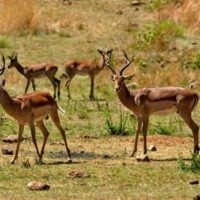Deadline: 17-Oct-2025
The World Wide Fund for Nature is seeking the expertise of a consultancy firm to support the finalization of key safeguard documents and to conduct a detailed scoping study on traditional and indigenous arts and handicrafts as sustainable livelihood options in the Khata and Basanta Corridors.
This initiative builds on an initial Environmental and Social Impact Assessment (ESIA) and baseline data already collected from 29 Community Forest User Groups (CFUGs) under six Community Forest Coordination Committees (CFCCs) across six municipalities. The baseline included household surveys, focus group discussions, and key informant interviews with relevant stakeholders.
The consultancy will play a vital role in analyzing and interpreting the collected data, conducting field verification, and supporting the finalization of critical safeguard documents. These include the ESIA, Indigenous Peoples Plan (IPP), Process Framework (PF), Grievance Redress Mechanism (GRM), and Environmental and Social Management Plan (ESMP). Additionally, the consultant will facilitate Free, Prior and Informed Consent (FPIC) processes where required, ensuring the voices of vulnerable and indigenous communities are incorporated into project planning.
The assignment is tied to the broader conservation goals of WWF Nepal, which aim to maintain functional corridors in the Karnali-Basanta-Dudhwa (KBD) complex to support tiger populations, strengthen transboundary cooperation to curb wildlife crime, reduce human-wildlife conflict, and establish stronger enabling conditions for conservation in the region.
A key component of the work will be the scoping study on traditional and indigenous arts and handicrafts. The study will assess current practices and future potential of local crafts as both income-generating activities and vital elements of cultural heritage. It will examine the availability of raw materials such as bamboo, rattan, natural fibers, Sal leaves, and other locally available or invasive species that can be repurposed. The study will also identify socio-economic impacts, market demand, and potential export opportunities, while mapping key stakeholders including artisans, NGOs, government bodies, and private sector actors who could help develop sustainable value chains.
Eligible VAT-registered organizations in Nepal are invited to submit detailed technical and financial proposals, with clear budgets in Nepali rupees, outlining how they will deliver on the objectives and scope of work. This consultancy represents a unique opportunity to contribute to both biodiversity conservation and sustainable livelihood development in one of Nepal’s most ecologically and culturally significant landscapes.
For more information, visit WWF.









































